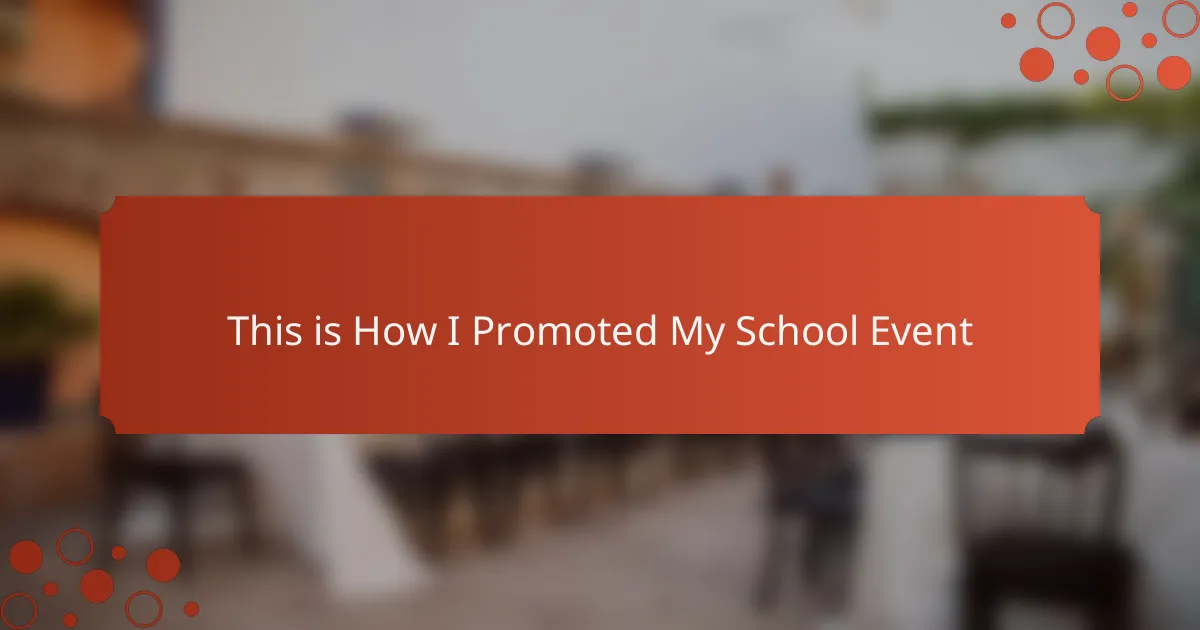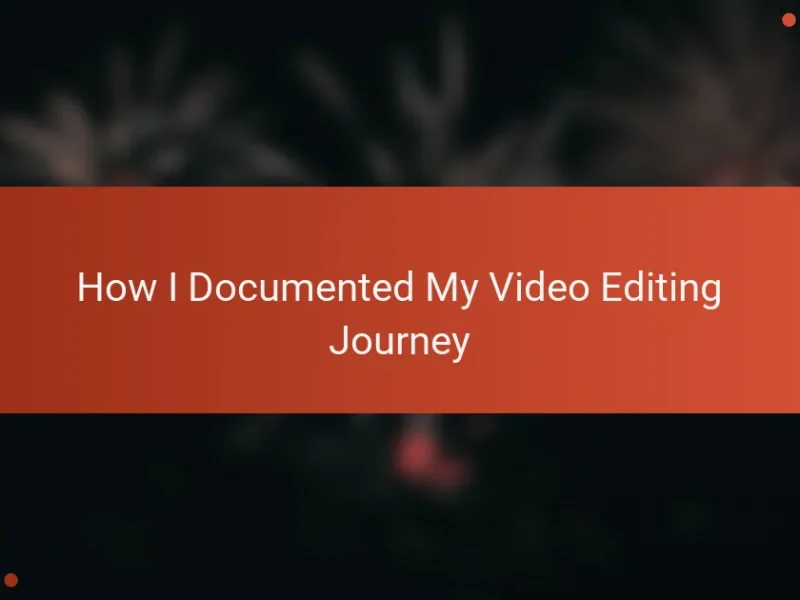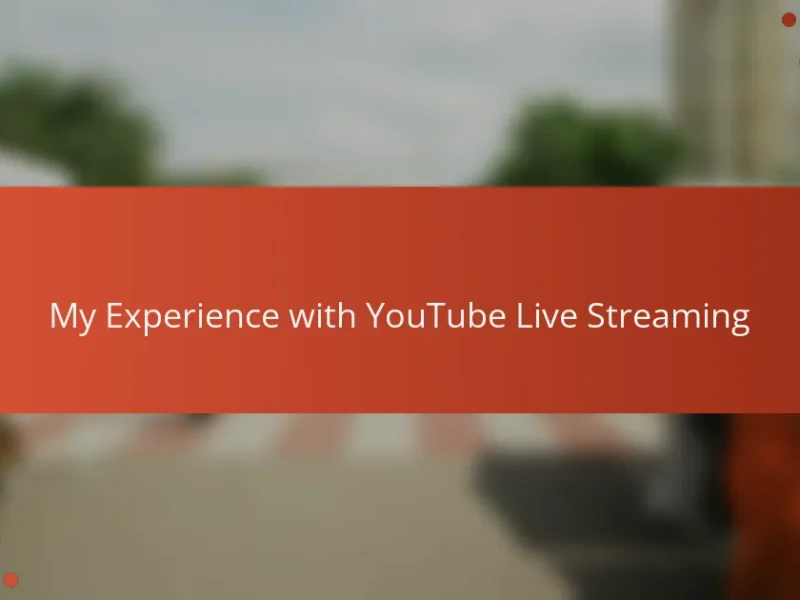Key takeaways
- Video contest entertainment fosters creativity and community engagement, turning passive viewers into active participants.
- A clear theme and inclusive planning enhance participant involvement and excitement for school video contests.
- Effective promotion through diverse channels and personal outreach boosts event attendance and engagement.
- Success should be measured by audience connection and participation quality rather than just numerical metrics.
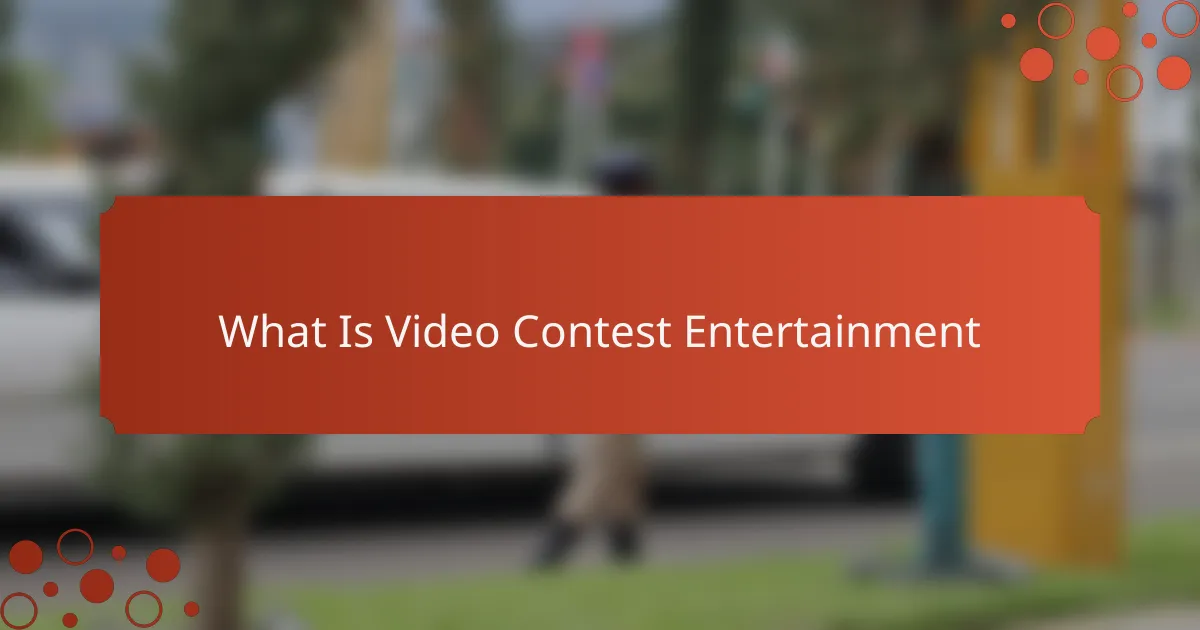
What Is Video Contest Entertainment
Video contest entertainment is all about bringing creativity and competition together through videos. It’s fascinating how a simple video contest can ignite so much enthusiasm and connection among participants and viewers alike. Have you ever noticed how watching someone’s story unfold in a video can make you feel instantly involved?
From my experience, these contests turn passive viewers into active fans, who are emotionally invested in every submission. There’s something uniquely thrilling about rooting for your favorite video, knowing that each view, like, or share could help someone win. Isn’t it amazing how entertainment and engagement blend so naturally in this format?
What strikes me most about video contest entertainment is how it transforms ordinary events into unforgettable experiences. It’s more than just watching videos; it’s about community, creativity, and celebration all rolled into one. Doesn’t that make you want to join in and share your own story?
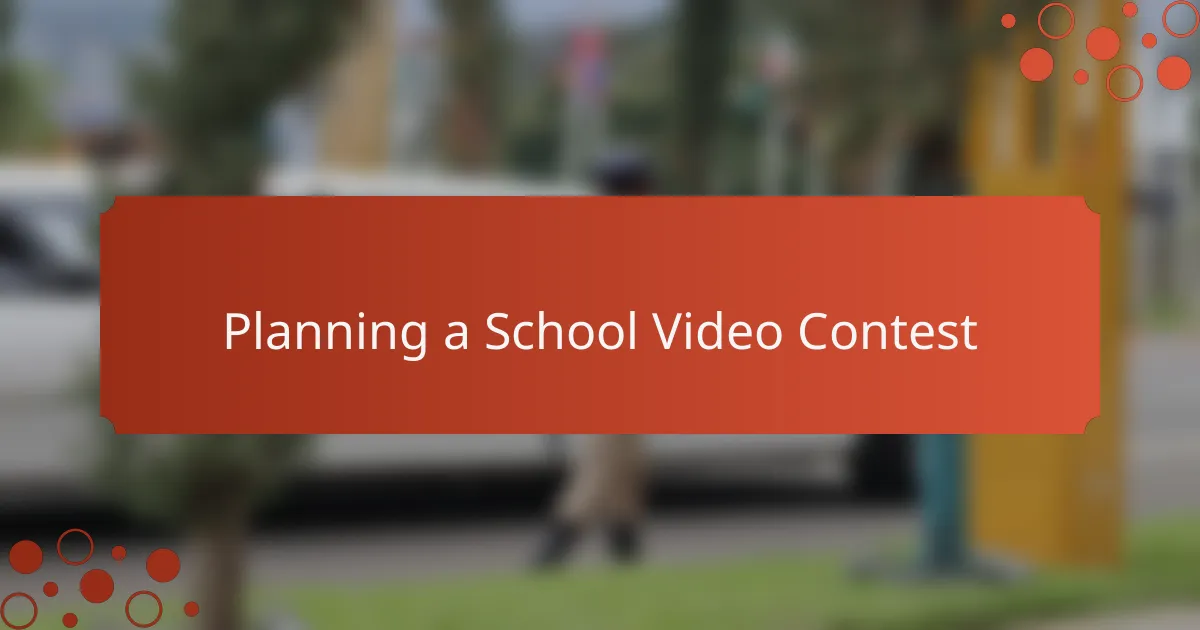
Planning a School Video Contest
When planning a school video contest, I always start by defining a clear theme that resonates with the students. This focus not only sparks creativity but also gives everyone a common story to tell. Don’t you find that having a strong theme makes the whole process feel more meaningful and exciting?
Setting realistic deadlines and providing detailed guidelines has been my go-to strategy to keep everything on track. From experience, clear instructions help reduce confusion and allow students to channel their energy into making their videos great instead of stressing about rules. Have you ever noticed how much smoother things run when everyone knows exactly what’s expected?
One thing I’ve learned is to involve teachers and students early on in the planning phase. Their input often brings fresh ideas and builds a sense of ownership that fuels participation. Isn’t it powerful when a group feels like they’re truly shaping the event together?
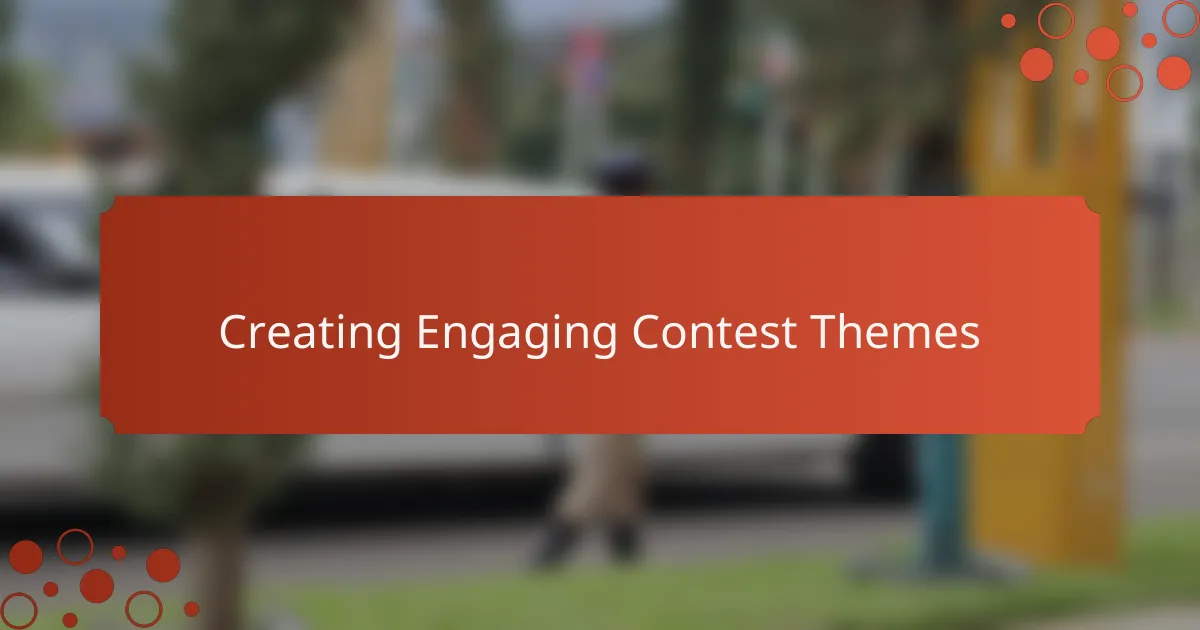
Creating Engaging Contest Themes
Choosing a theme that truly resonates with the students is vital to crafting an engaging contest. I remember when I picked a theme centered around “Acts of Kindness,” and the submissions came alive with heartfelt stories and genuine creativity. Have you ever noticed how a meaningful theme can inspire participants to dig deeper and share something personal?
It’s important to strike a balance between broad appeal and a focused message. Themes that are too vague often leave people confused, while overly narrow ones can stifle creativity. From what I’ve seen, a well-chosen theme invites diverse interpretations, making the contest more vibrant and exciting for everyone involved.
Involving students in selecting the theme can make all the difference. When I gave students a chance to vote on theme ideas, their enthusiasm skyrocketed—suddenly, the contest felt like it belonged to them. Doesn’t it feel rewarding when participants are not just contributors but also creators of the event’s identity?
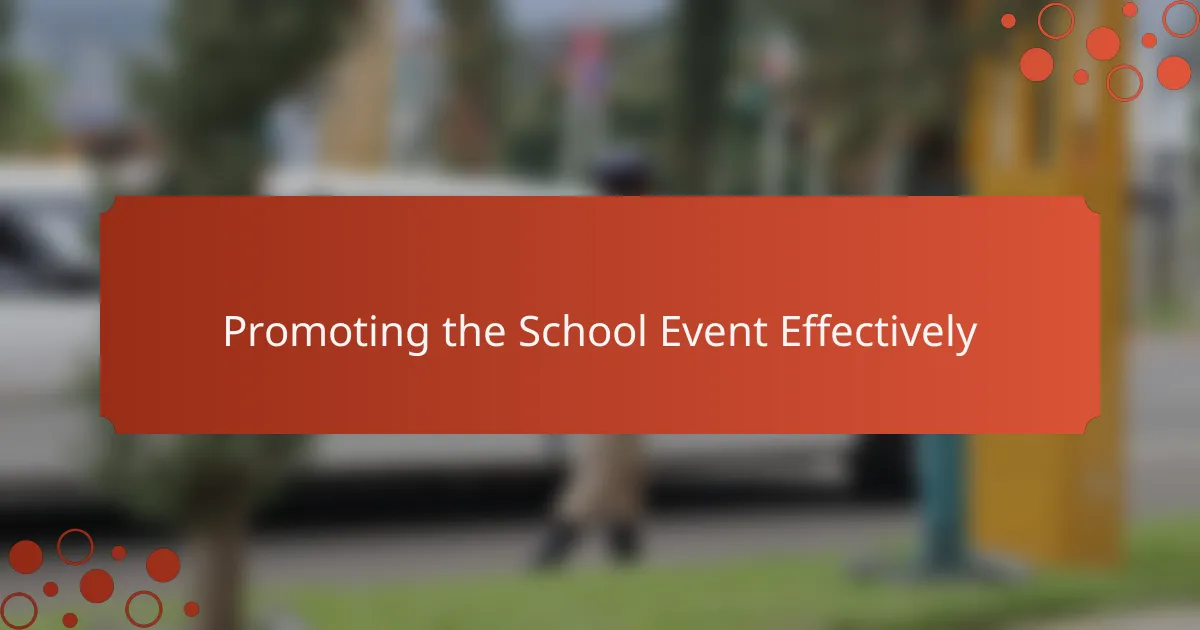
Promoting the School Event Effectively
Getting the word out effectively for a school event is truly an art. From my experience, using multiple channels like social media, school newsletters, and even simple posters around campus creates a buzz that can’t be ignored. Have you ever noticed how a well-timed Instagram story or a catchy flyer can suddenly make an event feel unmissable?
I’ve also found that personal invitations work wonders. There’s something about walking up to someone and sharing your excitement face-to-face that no digital message can replace. When I took the time to talk directly with students and teachers, their enthusiasm became contagious, and attendance often surprised me.
Timing plays a huge role, too. Starting promotions early but ramping them up as the event nears keeps interest alive without overwhelming people. Have you ever felt that initial excitement fade because reminders started too late or too often? Striking that balance keeps people engaged and eager to join.
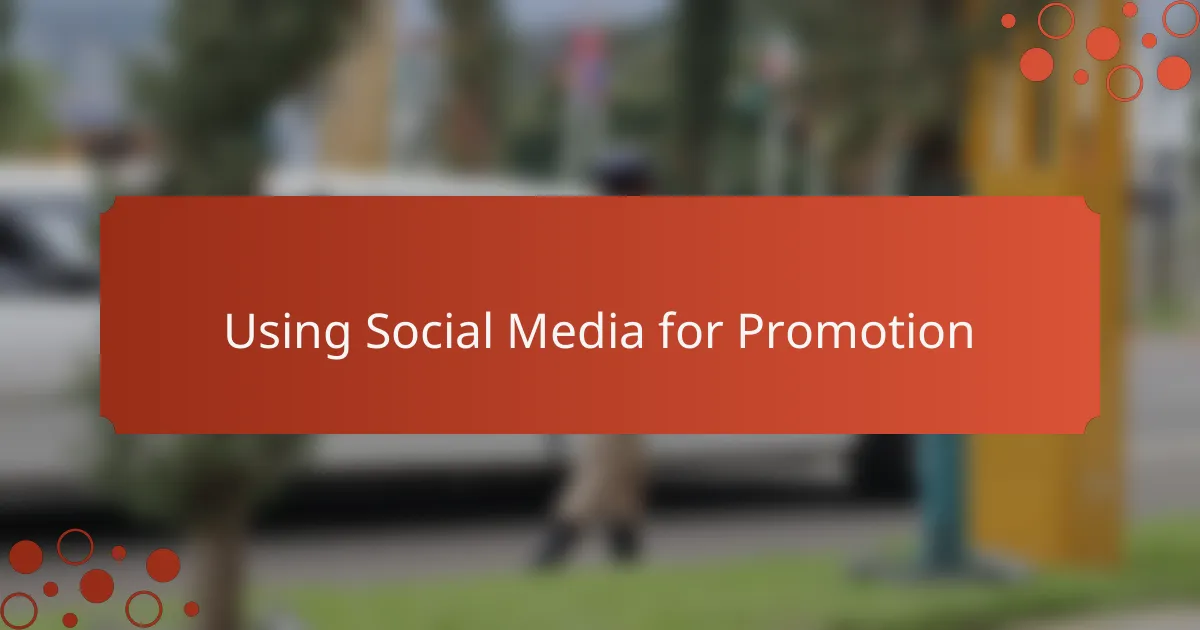
Using Social Media for Promotion
Using social media for promotion has been a game-changer in the way I spread the word about school events. I remember creating short, catchy video clips and sharing them on Instagram and TikTok, which sparked immediate interest among students who rarely check emails or flyers. Isn’t it amazing how a quick scroll through a feed can turn curiosity into excitement?
Engaging directly with the audience through features like polls, countdowns, and live Q&A sessions made the promotion feel interactive rather than one-sided. I noticed that when students were invited to share their own thoughts or vote on certain aspects, their connection to the event deepened—almost like they were part of the planning. Have you tried making your promotions feel like a conversation rather than just an announcement?
What surprised me the most was how often reposts and shares from students and teachers boosted the event’s reach far beyond what I expected. Each like, comment, or share seemed to build momentum and create a sense of community and anticipation. Don’t you find that social media, when used thoughtfully, becomes much more than just a platform for spreading news—it becomes a hub for genuine engagement?
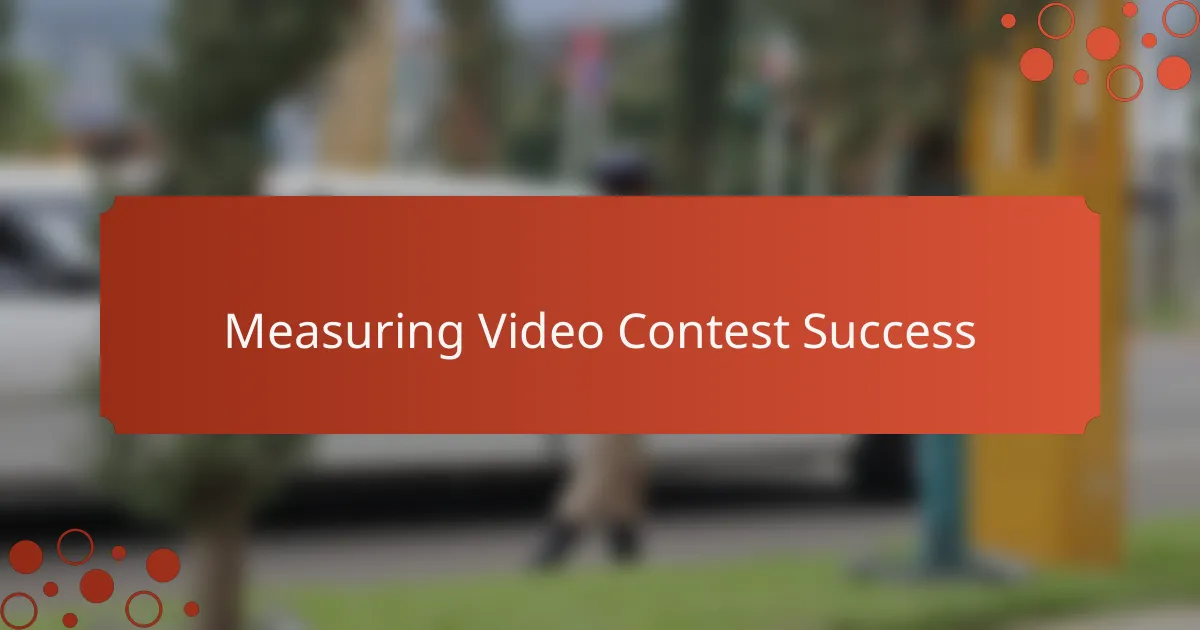
Measuring Video Contest Success
Measuring the success of a video contest goes beyond just counting views or likes. From my experience, it’s about seeing how deeply the audience connects with the content—do they comment, share, or even talk about the videos days after the contest? I’ve often found that engagement quality tells me more about success than sheer numbers.
Tracking participation rates also offers valuable insight. When more students actively submit videos and invite friends to watch, it means the contest hit the right chord. Have you noticed how a rising number of entries often signals growing enthusiasm and community spirit?
Lastly, I love to look at how the contest influences the school culture over time. Sometimes, the true success lies in the ripple effects—the friendships formed, the creative confidence sparked, and the lasting excitement for future events. Isn’t it incredible when a video contest becomes more than a one-time event, but a catalyst for ongoing inspiration?
